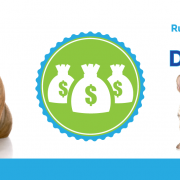Starting a Franchise or Independent Business, What’s Best for Me?
Read this Guide on Deciding on Starting a Franchise or Going Solo with an Independent Business
Entrepreneurs and investors looking to open a business are faced with a difficult decision. Should I start a franchise, or work from the ground up with independent business? There are big distinctions between both options which will lead small business owners down very different pathways. Whether you want to open a restaurant or a pet store, eventually you will come to the crossroads.
Before figuring out which route to take, you will need to ask yourself some questions to discern which is your best option.
- What is your business background?
- What kind of experience do you have in the industry you are pursuing?
- Do you work better with support and guidelines or do you have an unshakeable vision of what you want your small business to look like?
- Do you have viable finances available to start your business?
- Do you need support and training?
- What are you passionate about?
Opening a small business is an inherent risk. According to the Bureau of Labor Statistics, less than 20% of businesses started in 1994 are still open. Many state that franchise success rates are higher than independent businesses, but the truth is, the failure rate is the same. Only 66% of small businesses will survive the first two years. An even more bleak statistic is that one-half of total businesses fail in the first year. Avoiding becoming a statistic and establishing a thriving business is contingent on the decisions you make as an owner. The first of these decisions is deciding the route of business you plan on pursuing.
Read through this list of pros and cons to figure out your plan of action.
Creative Control
The area that is arguably the most important aspect of going into business is the operational concepts that establish and build the business. A franchise has developed these operational concepts and proved them in the marketplace. Successful franchises have fine-tuned these operations. Independent business requires prospect small business owners to develop these themselves. For example, if you plan on a retail store you will need to find vendors, design an inventory, and secure a POS system to name a few tasks.
Independent Business
With an independent business, this responsibility is completely your own. The advantage of this is that you have complete creative control. You design your bottom line and you alone are the ultimate deciding factor in every choice that pertains to the future your small business, for good or for worse.
Franchisee
Since you are starting a franchise, the scaffolding of the business is already in place. Many think of this is as buying a business in a box but in actuality, it is much more intricate than this. You will have to follow the guidelines set up by a franchisor—many of these are in place to secure a franchisee’s success.
Finances
Opening a business requires a huge amount of capital. Construction on a storefront, purchasing equipment & inventory, and training a staff are just a few costs that small business owners have to contend with. Each option has initial start-up costs, but where they differ is in the methods of financing and division of funds.
Independent Business
Historically, future independent business owners will have to account for more extraneous spending than franchises. Higher investments costs are due to liabilities and the fact that operational tasks are being done for the first time. For instance, a retailer will have to find vendors for their initial stock order and will not be entitled to group discounts that franchise owners are eligible for. However, having more control allows independent business owners to forestall certain investments. They are not mandated to proceed with expensive construction or purchasing non-essential equipment.
Franchisee
A prospective franchise owner will need to meet financial requirements that the company has in place to ensure success. They will also need to pay a franchise fee and annual royalty fees. Still, franchise business buyers have typically lower investment costs up front. Since the franchise model is perfected, franchisors have configured how to open units in the cost-effective method possible. This is advantageous. But in place, the franchisor reserves the right to Experience Level impose enforceable costs like remodeling and timing of construction.
Experience Level
Regardless of the industry, you are venturing toward, you are going to need to have a comprehensive experience level of the market and business tactics necessary to own a thriving business. Your experience plays a huge role in deciding whether opening your own business or starting a franchise.
Independent Business
If your background is within the industry you intend to invest in, then going solo might be a considerable choice. Over the years you have gained insights into how a business operates in this particular market. Essentially, you can cut out the middleman because you are a veteran. You are comfortable being in charge of the creative aspects of the business and can effectively lead a team.
Franchisee
One of the beautiful things about starting a franchise is you can have very limited experience in a field. Learnability goes a long way in franchises. If you can follow a business template and execute a business plan that has been proven to work then you can be a successful franchise owner. You can bring your unique skill set to the table combined with the guidance derived from the franchisor. This will maintain a thorough expertise on your operation.
Brand Recognition
A business’s brand extends beyond logos and company culture. Brand tells the story of the business and helps consumers associatively identify with the product or service. An effective brand for a restaurant will tell customers what their food tastes like, the ethics behind the food cultivation, and creates trust between the restaurant and the customer. Corporate social responsibility (CSR) also pertains to brand. These days consumers engage with brands tactilely because of social media. This means constructing an authentic and well-perceived brand is vital.
Independent Business
Going solo means you have absolutely no brand awareness or loyalty. First, you will have to create a brand. Then you will have to market this brand. This means you need a great idea. Then hiring at least a graphic designer to design a logo, letterhead, etc. Again, since you are creating this you will have the ultimate artistic vision over your brand. Store design is also a major segment of a brand. You will need to compose these elements too.
Franchisee
This is a huge advantage for franchise owners. Before opening doors, consumers already have a brand awareness for the future storefront. This means franchise owners don’t have to spend any time devoted to developing their brand and can focus their efforts toward marketing and other operational projects.
Operational Resources
Depending on the type of business you plan on opening will decide what operational resources you will need. Almost every business needs inventory, staff, POS system, marketing materials, equipment, and a workplace. Whether you are a SaaS developer or a burger joint these items are essential.
Independent Business
Like a start-up, independent business owners will need to build everything themselves. The vantage point to this is having no constraints. You can ‘cookie-cutter’ different resources for your specific needs. For instance, you can choose what scheduling software you want to use with your employees and only pay for the functions you need. The downside to this is it will be time-consuming. There are dozens of tasks that need to be finalized before a grand opening. Each task needs to be foolproof to increase the chances of your business survival.
Franchisee
Owning a franchise isn’t about developing operational resources, it’s about training to use them. A franchisor will provide all the resources you need and usually have proprietary software to assist with scheduling, inventory management, and accounting. You will have these resources at your disposal.
The Bottom Line
The best way to decide is to take an introspective look at yourself. Which route would you profit in? If you’re a DIY person who does not handle following rules, well then you might want to consider doing the independent route. If you excel at taking a concept and utilizing the resources to grow a business, franchising is the right move for you. There is a reason military veterans make talented franchise owners. They have an ability to follow the instructions toward success.
Think long and hard before choosing, and good luck!
Follow Splash and Dash Groomerie & Boutique:
- Website: http://splashanddashfordogs.com/
- Website: https://splashanddashfranchise.com/
- Facebook: https://www.facebook.com/splashanddashfordogs/
- Instagram: @splashanddashfordogs
- LinkedIn: https://www.linkedin.com/in/dan-j-barton-622ab517
- Twitter: splashanddash4dog










